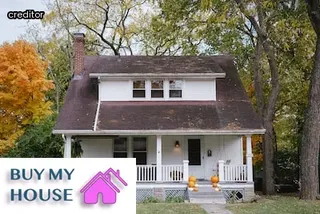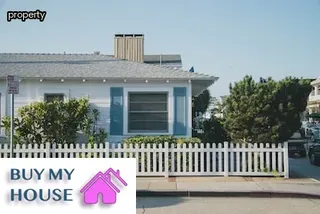When it comes to selling a home, there are many implications associated with the process of owning a mortgage. Before making any decisions about the sale, it is important to understand the potential effects of selling for less than what is owed on the mortgage.
Depending on the type of loan, some lenders may allow homeowners to sell their property “short” without taking a loss, while other lenders may require the homeowner to pay back any remaining balance after closing. Additionally, if the lender does not agree to a short sale, homeowners might face a deficiency judgment which would require them to make up any remaining balance in cash or through other means.
It is also important to consider taxes when selling for less than what is due on a loan; generally speaking, homeowners will be responsible for paying taxes on any forgiven debt that remains after closing. Understanding all of these factors before agreeing to sell can help ensure that homeowners are making an informed decision and are aware of all their options.

When it comes to selling your home with an outstanding mortgage, there are several strategies you can employ in order to minimize the amount of debt you owe. The most important strategy is determining why you need to sell your house for less than what you owe on the mortgage.
If it's due to a job change, relocation, or other financial hardship, be sure to contact your lender and discuss possible options like loan forbearance or a repayment plan. Additionally, be prepared to provide financial documentation that supports your case.
Another strategy is to identify an alternative buyer who could assume the existing mortgage and take over payments. This option may be attractive if interest rates have fallen since the original purchase of the mortgage, as well as if there aren't any prepayment penalties associated with it.
Lastly, you should consult with a real estate attorney who can review all of your documents for accuracy and advise you on how best to proceed with the sale of your home. With these strategies in mind, you'll have a better chance at successfully selling your home with an outstanding mortgage without taking a major financial hit.
When selling a house, it is important to understand the implications of selling your home for less than you owe on it. Due-on-sale clauses are an important consideration when negotiating contracts and must be taken into account when working out the terms of a sale.
These clauses can be included in loan documents and give the lender the right to demand immediate repayment if ownership of the property is transferred, or the borrower does not meet their contractual obligations. This means that any money owed on the loan must be paid in full before ownership can be transferred, which can have financial implications for both buyers and sellers.
Other contractual obligations that may come into play include prepayment penalties, transfer taxes, and other fees associated with buying or selling a home. It is essential to understand these contractual obligations before entering into a sale agreement so that you do not find yourself in an unfavorable situation down the line.

When selling a home with a mortgage, navigating settlement at closing can be a complex task. It is important to understand the implications of selling your house for less than what you owe.
Selling for less than you owe can mean that you are responsible for making up the difference if the proceeds from the sale do not cover the amount owed on the loan. This balance may have to be paid out of pocket or through another form of financing such as a bridge loan or secured line of credit.
Additionally, this type of transaction could affect your credit score and may appear as derogatory information on future credit reports. It is therefore essential to speak with your lender and real estate agent to determine if taking a loss on your house sale is the best option in order to avoid any potential negative financial repercussions.
When selling a home with a mortgage, it is common for the seller to owe more on the mortgage than what they receive from the sale. This can create a dispute between the buyer and seller if there is no agreement on how to resolve the shortfall.
If a buyer does not want to pay more than what was agreed upon in the original offer, then a seller must consider other solutions. One option is to negotiate with the lender for a short sale, which allows them to accept less money than what is owed on the mortgage.
Another resolution may be to negotiate with both parties for an ‘assumption of loan’ where the buyer agrees to take over payments of the existing mortgage and assume responsibility for future payments. Sellers may also choose to cover all or part of any remaining balance owed on their own, or seek help from family or friends who can provide financial assistance.
In each case, it is important that all parties involved understand their rights and obligations so they can reach an agreement without any long-term negative consequences.

Selling a house with an outstanding mortgage can be complicated and fraught with potential risks. Before making this decision, it is important to evaluate the implications and potential considerations of such an action.
Mortgage holders may face losing their home if they are unable to make up the difference in what they owe versus the amount for which their house sells. This could result in foreclosure proceedings, or a deficiency judgment that would require payment of the remaining balance.
Additionally, short sales may have tax repercussions as any debt forgiven by a lender must be reported as income on federal taxes. Furthermore, selling a home for less than is owed may damage credit scores and can reflect negatively on future loan applications.
It is essential to understand all potential consequences of selling a house with an outstanding mortgage before making this significant decision.
For those looking to unload their property and avoid bankruptcy or foreclosure, there are a few alternatives worth exploring. One option is a short sale, which occurs when the homeowner sells their home for less than what is owed on the mortgage.
This type of sale requires approval from the lender and can often result in negative financial implications for the seller, including damage to their credit score and potential tax consequences. Another option is a deed-in-lieu of foreclosure, where the homeowner voluntarily signs over ownership of their property to the lender in exchange for avoiding a formal foreclosure process.
Though this can be beneficial in avoiding damage to one’s credit score and potential legal fees, it can still lead to tax implications depending on individual circumstances. Lastly, some lenders may offer loan modifications that allow homeowners to adjust their existing mortgage terms if they are unable to make payments due to financial hardship.
All of these alternatives should be thoroughly discussed with professionals before deciding which route to pursue.

When selling a home with an existing mortgage, it is important to understand the legal requirements involved. The seller must pay off the remaining mortgage balance and any additional fees associated with the sale.
In some cases, this may mean selling the home for less than what is owed on it. This can have serious implications for both the seller and the lender, as there may be tax or credit ramifications that need to be taken into account.
It is crucial for all parties involved to understand their rights and obligations in order to ensure that all parties involved receive fair treatment throughout the process. Understanding local regulations and laws related to mortgage lending can help both sides of the transaction avoid unwanted surprises or conflicts down the line.
When looking at the implications of quitclaim deeds on land contracts, it is important to understand that these documents can have a direct impact on the sale of your home. In some cases, a homeowner may use a quitclaim deed to transfer ownership of their property to another person or entity while still being responsible for any outstanding mortgage debt.
This means that if a homeowner uses a quitclaim deed to sell their house for less than they owe, they will still remain liable for the remaining balance on their loan. Furthermore, this could also have an effect on the credit score of the borrower and their ability to obtain future financing.
Additionally, depending on the laws in the area where the property is located, there may be tax implications associated with selling a home for less than what is owed. As such, it is important that homeowners considering using quitclaim deeds consider all potential outcomes before making this decision.

Yes, the quitclaim deed holder may have the opportunity to assume the first mortgage if they are willing to make up the difference between what they paid for the house and what is owed. This means that if the seller sold their house for less than what was owed on it, then the quitclaim deed holder could step in and pay off any remaining balance or assume responsibility for all of it.
This situation can be complicated though; not only does this depend on whether or not the mortgage lender allows such an arrangement, but also if there are any other creditors who may need to be paid before this can occur. Additionally, this would require a financial commitment from both parties, as well as any other creditors involved.
All of these factors should be taken into consideration when making a decision about such an arrangement.
When selling a home, many buyers and sellers consider the option of seller financing. It is an alternative to traditional mortgage financing and can be beneficial in some situations.
However, it is important to understand the implications of this type of sale before entering into an agreement. Seller financing involves the seller providing a loan to the buyer for part or all of the purchase price, with interest being charged on the amount borrowed.
This can help buyers who have difficulty obtaining traditional financing due to a poor credit score or lack of collateral. On the other hand, if a seller agrees to finance a sale, they are taking on significant risk since there is no guarantee that their loan will be repaid.
Additionally, if a property is sold for less than what is owed on it, then any amount left over after paying off existing mortgages goes directly to the seller and not back into their pocket as profit. This could leave them in financial trouble if they are unable to cover all costs associated with the sale.
While seller financing may be beneficial in some cases, it's important to consider both pros and cons carefully before agreeing to any such arrangement.

When considering selling your house for less than you owe, it is important to know the potential implications. Depending on the circumstances, banks may reject quit claim deeds due to a variety of factors.
If the seller owes more than the current market value of the home, banks may not accept a quit claim deed as they are not usually willing to accept an investment that is worth less than what was loaned. Additionally, if there is a second mortgage or other liens on the property that cannot be paid off with proceeds from the sale, banks may reject a quit claim deed as it does not protect their financial interests.
Furthermore, if taxes or other debts remain unpaid after closing and transferring ownership of the property, banks may also choose not to accept a quit claim deed as it does not guarantee payment of these debts. In any case where a bank rejects a quit claim deed, alternative solutions should be explored in order to ensure that all parties involved have their interests properly protected.
Owner Occupant Certification is an important factor to consider when selling your house for less than you owe. As the homeowner, you must certify that you occupy the house as your primary residence and that you plan to continue to do so for at least 36 months after the sale.
If this certification is not provided, the lender may refuse to accept the short sale or require a larger down payment from the buyer. This means that if you are unable to provide this certification, either because you have already moved or because it has been longer than 36 months since you moved in, then a successful short sale may be difficult or impossible.
Furthermore, failure to comply with these requirements could result in legal action against both the seller and buyer. Therefore, it is essential for homeowners considering a short sale to understand and comply with all owner occupant certification regulations prior to closing on their home.

For those who owe more on their home than it is worth, the implications of selling their house for less than they owe can be significant and long-lasting. While this situation is not ideal, there are a few financial assistance options available to help individuals in this predicament.
One option is to work with a bank or lender to negotiate a loan modification, as some lenders may be willing to reduce the total amount owed, or even forgive part of the debt. Another possibility is to apply for a short sale, which allows homeowners to settle the mortgage debt for less than what they actually owe.
Additionally, one can look into government assistance programs such as Home Affordable Foreclosure Alternatives (HAFA) that offer resources and guidance throughout the process. People should also consider speaking with a qualified financial professional before making any decisions about their mortgage debt so that they have an understanding of all potential options and consequences.
When selling a house for less than what is owed on the existing mortgage, it is important to understand the consequences of defaulting on any existing mortgages after transferring ownership through quitclaim deed. When a homeowner transfers title by using a quitclaim deed, they are essentially releasing their rights and interests in the property to another person or entity.
This may leave them liable for any outstanding debt associated with the property if the sale amount does not cover the amount of debt that was previously owed. A homeowner could also face potential legal ramifications if they do not pay off all outstanding mortgages before transferring ownership.
Additionally, when a homeowner sells their home for less than what is owed on their mortgage, it can have serious implications to their credit score and future borrowing capabilities. It is essential to thoroughly research any potential legal and financial repercussions prior to selling a home under these circumstances, in order to avoid any negative outcomes.

When exploring ways in which lenders may consent to a short sale agreement, it is important to consider the implications of selling a house for less than the amount owed. A short sale is when the homeowner sells their property for less than the mortgage balance, and the bank agrees to accept that amount as full payment.
It can be difficult for homeowners to obtain lender approval for a short sale, but there are a few potential benefits that may make it worth pursuing. For instance, in some cases it allows homeowners to avoid foreclosure, maintain their credit score, and limit financial losses associated with a foreclosure.
Additionally, some lenders may allow homeowners to benefit from tax breaks or other incentives if they agree to a short sale. Although it is not an easy process, understanding the implications of selling your home for less than you owe can help homeowners make an informed decision about whether or not to pursue a short sale agreement with their lender.
It's called a short sale when you sell your house for less than you owe. A short sale occurs when the proceeds from the sale of a home aren't enough to cover the balance owed on the mortgage.
This means that, in order to complete the sale, the lender must agree to accept less than what is owed. Doing a short sale can have several implications.
For instance, it may have an impact on your credit score and may affect your ability to obtain new financing in the future. Additionally, lenders may also require a financial hardship letter explaining why you're unable to pay off all of your debt.
Lastly, you may be liable for any unpaid taxes or fees associated with the sale of your home. It is important to understand all of these implications before deciding if a short sale is right for you.

If you sell your home for less than you owe, you may be faced with a deficiency balance. This means that, after the sale of your home, you still owe the lender money.
Depending on the terms of your loan and state law, this balance may need to be paid in full or it can be negotiated. If there is an agreement between you and your lender to forgive the remaining balance, you may need to claim that amount as income on your tax return for the year in which it was forgiven.
This can have significant implications for your taxes, as any forgiven debt over $600 is considered taxable income. Additionally, if there are multiple loans associated with the property, such as a first mortgage and a second mortgage or line of credit, each loan must be satisfied separately during the process of selling your home for less than what is owed.
Failure to satisfy all loans could result in legal action from one or more lenders.
When selling a house with negative equity, it is important to understand the implications of doing so. Negative equity occurs when the amount of money owed on a property is more than what it can be sold for.
This means that even if the home is sold, there will still be an outstanding balance due to the lender. The consequences of this can vary depending on your situation, but could include having to make up the difference yourself, being forced into foreclosure, or damage to your credit score.
It’s also important to consider other options before selling a home with negative equity in order to minimize any potential financial damage. These could include refinancing, renting out the property, or trying to negotiate with your lender.
Ultimately, understanding all of the possible implications and outcomes of selling a home with negative equity is essential in order to make an informed decision.
If you are considering selling your house before paying off the mortgage, there are a few implications that you should be aware of. Selling a house for less than what is owed on the mortgage can have serious financial ramifications, as it may leave you with a deficiency balance or deficiency judgment.
A deficiency balance is the amount left outstanding after selling the home for less than what is owed on the mortgage. This can result in a legal obligation to pay back the difference between what was owed and what was actually paid at closing.
Additionally, if the lender obtains a deficiency judgment they may be able to garnish wages or take other action to collect on the debt. Furthermore, if you are unable to pay off any remaining balance due on the loan, this could adversely affect your credit score and credit history.
Therefore, it is important to carefully consider all of your options before deciding to sell your house for less than what is owed.
A: This is known as a "short sale," where the proceeds from the transaction are used to pay off the home loan but do not cover the full amount. Depending on the terms of your loan, this could result in your mortgage provider taking legal action, such as foreclosure.
A: If you are unable to refinance or foreclose on your house, then you may be responsible for the difference between what you owe on the mortgage and the amount of money received from selling it.